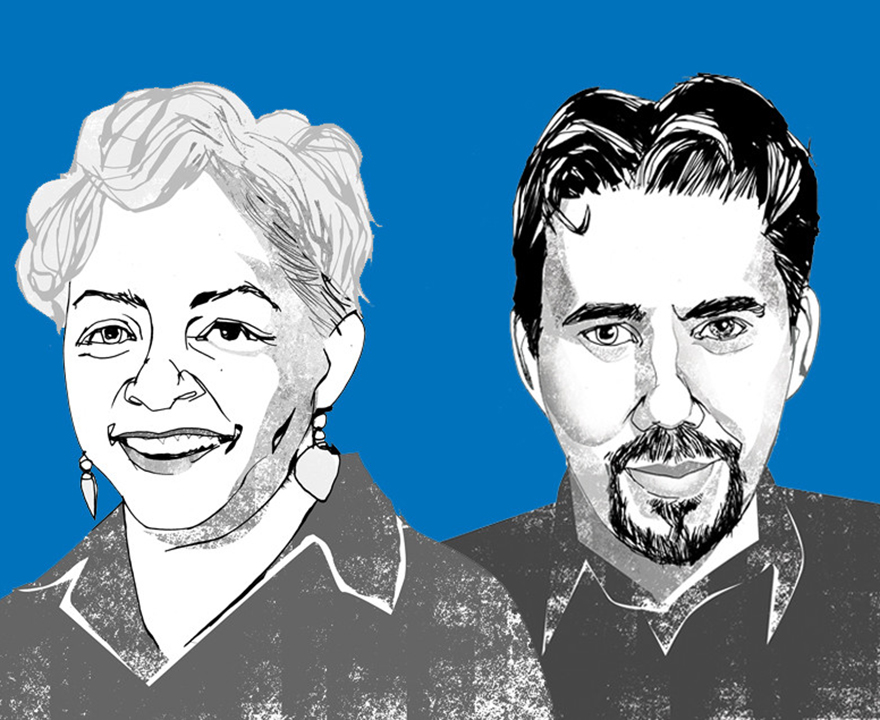UCI’s Michael Tesler named one of top 50 thinkers, doers and visionaries transforming American politics

UCI’s Michael Tesler named one of top 50 thinkers, doers and visionaries transforming American politics
- September 20, 2016
- Poli sci prof makes Politico Magazine’s top list for 2016
-----
—from Politico Magazine—
What can explain the thrill that a certain portion of the electorate gets when a chest-thumping,
dog-whistling—and, typically, overwhelmingly white—Donald Trump rally comes to town?
Maybe it’s how the candidate skillfully channels working-class anxieties and anti-Washington
rage. Or maybe it’s not even that complex: Maybe it’s about race. According to Michael
Tesler, a political scientist, and Carol Anderson, a historian, white racism has long
shaped American politics—and 2016 is no exception.
This year, in her book White Rage: The Unspoken Truth of Our Racial Divide, Anderson argues that black Americans’ advances have always been followed by white
Americans’ efforts to resist them or roll them back. After slavery was abolished,
there were Jim Crow laws; after Brown v. Board of Education, whites segregated themselves
in private schools and wealthier districts; after passage of the Civil Rights Act
and the Voting Rights Act, Richard Nixon made an appeal to white voters with his “Southern
strategy” and Ronald Reagan escalated the war on drugs, which disproportionately jailed
African-Americans. Whether in legislatures, the courts or police departments, Anderson
argues, white rage against black progress has worked to keep deep racial inequality
entrenched in American society—and does to this day.
There may be no single symbol of black progress more powerful than an African-American
in the White House, and Tesler, author of this year’s Post-Racial or Most-Racial?: Race and Politics in the Obama Era, argues that Barack Obama’s 2008 election triggered a new racialized backlash. Tesler
draws a distinction between “racial conservatives,” who are more likely to agree with
stereotypes like the notion that black people are poorer than white people because
of lack of effort, and “racial liberals.” Racial conservatism, Tesler’s work shows,
has become a stronger predictor for identifying as Republican, and it spiked with
Obama’s election. Over the past year, a steady stream of studies, polls and analyses—including
Tesler’s own findings—appear to bear out that theory and show how it’s shaping the
2016 campaign; they chart a correlation between racial resentment and support for
Trump. As the most prominent mouthpiece for the “birther” conspiracy theory about
Obama, Trump—whose campaign has been entangled with white supremacist groups and whose
support among African-Americans is in the single digits—is fanning the flames, Tesler
says. Even in 2016, even with a black man in the White House, Tesler wrote in the
Washington Post, “Donald Trump is the first Republican in modern times to win the party’s presidential
nomination on anti-minority sentiments.”
Q&A: Michael Tesler
Favorite book this year:
“Racial Realignment: The Transformation of American Liberalism, 1932-1965,” by Eric
Schickler.
Does America need to be “made great again”?
No. The “great” America that Donald Trump looks back on with such nostalgia wasn’t
so great if you weren’t a heterosexual white man.
Best Trump historical comparison:
George Wallace. Both used bigotry, anti-intellectualism and populism at a time of
progressive social change to appeal to whites concerned about the country pushing
too fast for racial and social equality.
Something to miss about President Obama?
His integrity. History will recognize that Obama faced a level of vitriolic opposition
that was not commensurate with his actions as president—and that a lot of the unwarranted
vitriol was fueled by his race. Obama always conducted himself with integrity and
dignity, presiding over a remarkably scandal-free administration.
-----
Would you like to get more involved with the social sciences? Email us at communications@socsci.uci.edu to connect.
Share on:
Related News Items
- Careet RightAmericans are in an unusually liberal fiscal policy mood
- Careet RightDemocrats' waning support for Israel extends to Jewish Democrats too
- Careet RightCivil rights and liberties are now the most important issue for Democrats
- Careet RightICE's popularity is plunging
- Careet RightTesla's rough ride: How Musk's political brand is hurting sales


